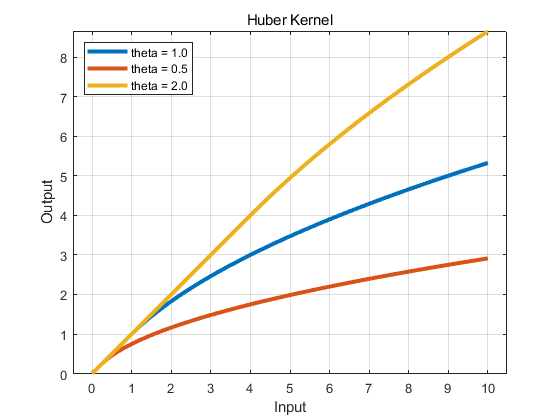pypose.optim.kernel.Huber¶
- class pypose.optim.kernel.Huber(delta=1.0)[source]¶
The robust Huber kernel cost function.
\[\bm{y}_i = \begin{cases} \bm{x}_i & \text{if } \sqrt{\bm{x}_i} < \delta \\ 2 \delta \sqrt{\bm{x}_i} - \delta^2 & \text{otherwise } \end{cases}, \]where \(\delta\) (delta) is a threshold, \(\bm{x}\) and \(\bm{y}\) are the input and output tensors, respectively.
- Parameters
delta (float, optional) – Specify the threshold at which to scale the input. The value must be positive. Default: 1.0
Note
The input has to be a non-negative tensor and the output tensor has the same shape with the input. Use torch.nn.HuberLoss instead, if a scalar Huber loss function is needed.
Example
>>> import pypose.optim.kernel as ppok >>> kernel = ppok.Huber() >>> input = torch.tensor([0, 0.5, 1, 2, 3]) >>> kernel(input) tensor([0.0000, 0.5000, 1.0000, 1.8284, 2.4641])

